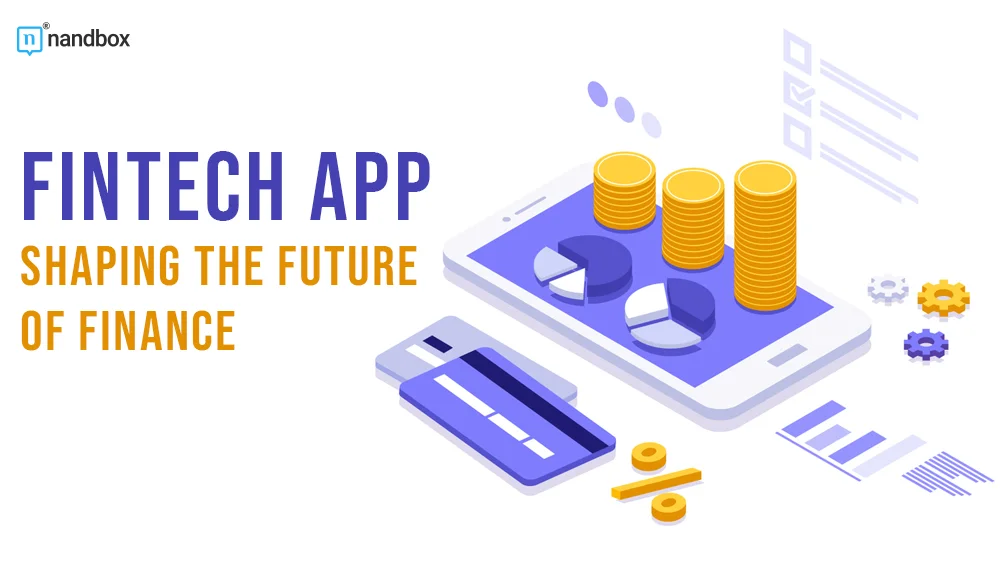Our smartphones have become our wallets, financial advisors, and even our lenders in today’s evolving world. According to a recent study by Allied Market Research, the global fintech market is projected to reach a staggering $698.5 billion by 2030. Leading this charge is a new generation of financial technology apps, collectively known as “fintech.” These are reshaping how we manage our money, invest for the future, and access essential financial services. This article delves into how these apps revolutionize the financial landscape and what this means for consumers like you and me.
Let’s delve in and learn more!
Reimagining Everyday Banking
The fintech app is fundamentally changing the way we bank. Forget standing in line at a physical branch—with just a few taps on your smartphone. You can open a bank account, deposit checks, pay bills, and even send money across borders.
Moreover, these international money transfer app have simplified and streamlined the process of sending money to loved ones overseas, offering competitive money exchange rates and lower fees. Some of these apps even charge no fees for your first money transfer. Whether your recipient has a bank account or not, they can often collect the cash conveniently from a local partner store.
This level of convenience and accessibility is empowering individuals and transforming the traditional banking experience. Users get real-time transaction notifications, spending insights, and budgeting tools. These give them more control and visibility over their finances than ever before. They also promote financial literacy and responsible spending habits.
The Rise of Personal Finance Management
The fintech software development app is empowering individuals to take charge of their financial futures through a suite of intuitive and personalized features:
- Budgeting Made Easy: User-friendly interfaces and automated categorization simplify the budgeting process. Track income and expenses in real time. Set spending limits for categories. Get alerts if you’re nearing your budget.
- Insightful Spending Analysis: Gain a clear picture of where your money is going. Analyze spending patterns over time. Identify areas to cut. Use this to make informed finance decisions.
- Goal Setting and Tracking: Set financial goals, whether it’s saving for a down payment on a house or planning for retirement. Apps help you create a roadmap to reach your goals, track your progress, and stay motivated.
- Financial Education: Access a wealth of educational resources within the app. Learn about investing, budgeting, credit scores, and other essential financial topics through articles, blogs, videos, and interactive courses.
- Personalized Financial Advice: Some apps use artificial intelligence to give personalized financial insights. They are based on your spending habits and goals.
- Bill Management: Stay on top of your bills with reminders and automatic payments. Never miss a due date or incur late fees again.
This shift towards proactive money management is helping individuals achieve their financial goals. It is also contributing to a more financially literate and empowered society.
Democratizing Investments
The fintech app istearing down the walls that once made investing the exclusive domain of Wall Street. Now, everyday individuals can build their portfolios and participate in the stock market with ease. Trading platforms are now commission-free. They also offer fractional shares and robo-advisors. These have opened the doors to a new generation of investors.
You no longer need a large sum of money to start investing. Fractional shares let you invest in portions of expensive stocks, opening up opportunities for those with smaller budgets. Robo-advisors use algorithms to automatically manage investments. They match your risk level and money goals. This investing democratization empowers individuals to take control of their financial future and build wealth over time.
Transforming Lending and Borrowing
The fintech app is changing lending and borrowing. They offer borrowers more access, convenience, and flexibility.
- Streamlined Loan Applications: Forget mountains of paperwork and lengthy approval processes. Fintech lenders offer quick and easy online applications, often with instant decisions.
- Expanded Access to Credit: New data sources and credit models help fintech lenders. They reach borrowers who need help getting traditional loans.
- Competitive Interest Rates: P2P lending marketplaces and online loan platforms often offer low interest rates. They are competitive and can save borrowers money.
- Transparent Fee Structures: Fintech lenders typically provide transparent fee structures upfront, eliminating hidden costs and surprises.
- Flexible Loan Options: Borrowers can often customize their loan terms to fit their individual needs and financial situations.
- Faster Funding: Once approved, funds can often be disbursed quickly, sometimes within a few days or even hours.
- Business Financing Made Easy: Small business owners can access a range of financing options tailored to their needs, from short-term loans to lines of credit.
This democratization of lending fosters financial inclusion. It empowers people and businesses to access the capital they need to thrive.
Takeaway
The fintech app is not just a trend; they are a financial revolution. They have democratized banking, made investing accessible, transformed lending, sent money internationally easy, and empowered individuals to take control of their financial lives. While challenges like security and regulation remain, the potential for fintech to reshape the financial world is undeniable. As technology continues to advance, we can expect even more innovative solutions that will further democratize and personalize financial services for everyone.




